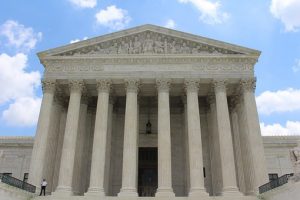U.S. Supreme Court Clarifies Employer’s Burden for Proving that Employee is Exempt From Overtime
In lawsuits where employees claim their employer wrongfully withheld overtime or minimum wage, if the employer claims that the employees were “exempt” it bears the burden of proving that they actually met the requirements of the exemption under the Federal Fair Labor Standards Act. There was a split among the Federal Circuit Courts of Appeals regarding what that burden of proof was. The United States Supreme Court has now resolved that conflict in the case of E.M.D. Sales Inc. v. Carrera.
Standards Act. There was a split among the Federal Circuit Courts of Appeals regarding what that burden of proof was. The United States Supreme Court has now resolved that conflict in the case of E.M.D. Sales Inc. v. Carrera.
Wage and Hour Protections for New Jersey Employees
New Jersey employment law provides that employers must pay minimum wage and overtime to most employees unless they are exempt. The Federal Fair Labor Standards Act provides similar protections. The main exemptions under both Federal and New Jersey employment law are similar. Administrative, executive, professional and “outside sales” employees are exempt from minimum wage and overtime provided they make a minimum salary.
 New Jersey Lawyers Blog
New Jersey Lawyers Blog


 penalties for violations. In August 2024, the New Jersey Legislature further strengthened these laws to prevent employers from taking advantage of complaining employees because of their immigration status.
penalties for violations. In August 2024, the New Jersey Legislature further strengthened these laws to prevent employers from taking advantage of complaining employees because of their immigration status. Affairs in the Department of Law and Public Safety
Affairs in the Department of Law and Public Safety recovery of attorneys fees, enhanced damages, and a longer, six-year statute of limitations. One question left open by the Legislature was whether the statute of limitations would be applied retroactively to cover conduct prior to the amendments, or prospectively to cover only conduct from 2019 onward. The New Jersey Supreme Court has now unambiguously answered that question.
recovery of attorneys fees, enhanced damages, and a longer, six-year statute of limitations. One question left open by the Legislature was whether the statute of limitations would be applied retroactively to cover conduct prior to the amendments, or prospectively to cover only conduct from 2019 onward. The New Jersey Supreme Court has now unambiguously answered that question. and a half”) for work beyond forty hours in any week. However, there are exceptions. The major exemptions are for executive, administrative, professional, and highly compensated employees. In addition to the requirements particular to each exemption, the employees cannot be paid less than the threshold for the exemption.
and a half”) for work beyond forty hours in any week. However, there are exceptions. The major exemptions are for executive, administrative, professional, and highly compensated employees. In addition to the requirements particular to each exemption, the employees cannot be paid less than the threshold for the exemption. common. The New Jersey Appellate Division recently addressed one of the laws behind this issue in the case of
common. The New Jersey Appellate Division recently addressed one of the laws behind this issue in the case of  wages that they are due, and sets forth the timing and procedures for payments and permitted deductions. This is a much-litigated area of New Jersey
wages that they are due, and sets forth the timing and procedures for payments and permitted deductions. This is a much-litigated area of New Jersey 
 the case of
the case of